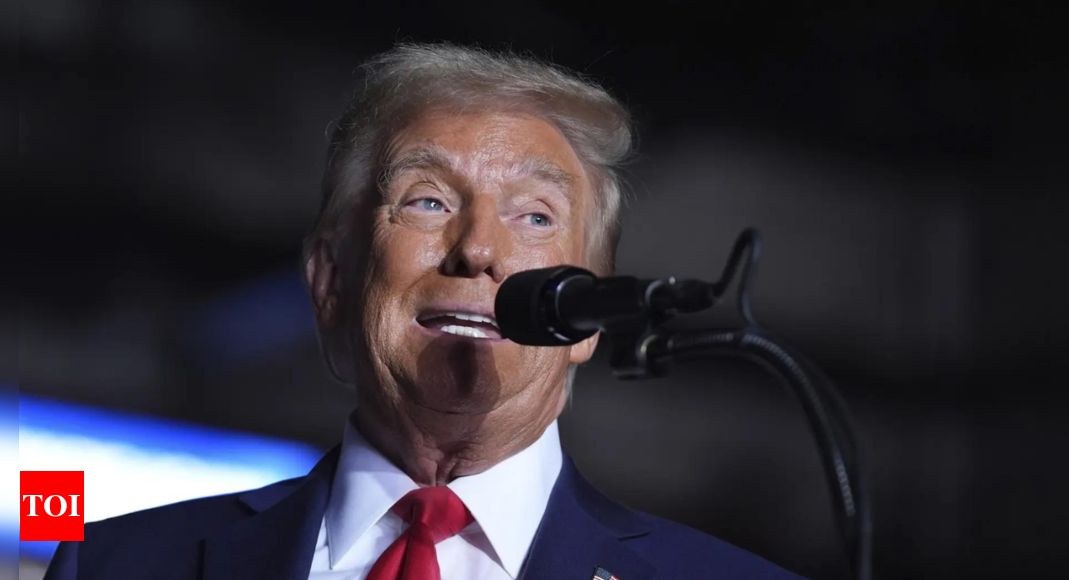As Donald Trump is poised to take over the Oval Office, all eyes are on some of the serious criminal charges against him, which also include federal cases.
The second term could help Trump do away with federal indictments accusing him of mishandling classified documents and seeking to overturn the 2020 presidential election results. According to reports, prosecutors will find new, and possibly fatal, legal hurdles to what have already been complex and unprecedented proceedings.
Former chief of the Manhattan District Attorney’s trial division Karen Friedman Agnifilo said, “If he wins, say goodbye to all the criminal cases.”
According to ABC News, Friedman suggested that a victory for the former US president in the elections would serve as a “get out of jail free card” for him.
Charges Trump is facingIn the New York hush money trial, Trump was convicted of falsifying his business records to cover up the payment of $130,000 made to adult film actress Stormy Daniels. This was likely the first criminal case against a former or current US president.
According to a report from ABC News, the sentencing could still proceed in November if Trump wins the election, though the new circumstances could influence Judge Merchan’s decision, according to Boston College law professor Jeffrey Cohen.
“A sitting president wouldn’t be forced to be incarcerated while they’re serving their presidency, and so he could theoretically serve it once he’s out of office,” said Cohen.
In the Fulton County election interference case, Trump faces charges for illegally attempting to overturn the results of the 2020 election in Georgia. Trump’s criminal case in Fulton County, Georgia has been stalled since June.
As state cases in Georgia and Manhattan are beyond the Department of Justice’s jurisdiction, Trump would have a much harder time influencing them as president. Experts have argued that it is unlikely for them to proceed if Trump is in the White House.
In the federal election interference case, Trump is facing four federal charges for undermining the 2020 election results, including conspiracy to defraud the US, conspiracy to obstruct an official proceeding, attempting to obstruct an official proceeding, and conspiracy against rights.
Trump has pleaded not guilty and insisted that the accusations were a political move. These charges, brought by special counsel Jack Smith, are currently on hold as Judge Tanya Chutkan determines the course of the case’s proceedings in light of the Supreme Court’s presidential immunity ruling.
The classified documents case is among the four criminal cases brought against Trump. He was indicted last year on multiple counts, including retaining classified information and obstructing justice.
In July, the classified documents case against him was dismissed after US District Judge Aileen Cannon sided with defense lawyers. They had argued that the special counsel, who filed the charges against Trump, was illegally appointed in the case by the US Justice Department.
Days after this ruling, US District Judge Aileen Cannon dismissed the classified documents case against Trump, citing that Attorney General Merrick Garland’s appointment of special counsel Jack Smith was ‘unconstitutional.’
Will Trump self-pardon himself?The question of whether Trump could pardon himself if re-elected remains legally challenging, as the US Constitution does not explicitly address self-pardon, and no president has ever attempted one.
While some argue that a self-pardon would contradict fundamental legal principles, referencing a 1974 Department of Justice memo that says “no one may be a judge in his own case,” others believe the Constitution’s broad pardon power does not exclude self-pardons.
If a president were to attempt a self-pardon, it would almost certainly lead to significant legal challenges and could ultimately require a Supreme Court ruling. Furthermore, presidential pardons apply only to federal offenses and would not impact any state-level charges, such as those Trump faces in Georgia.
